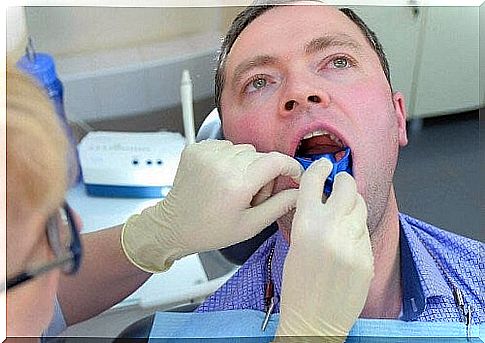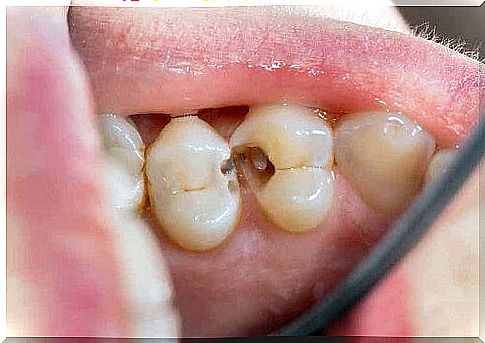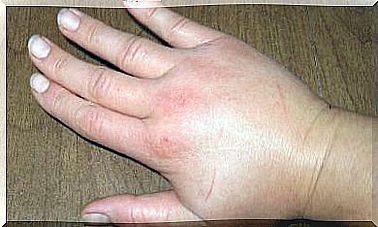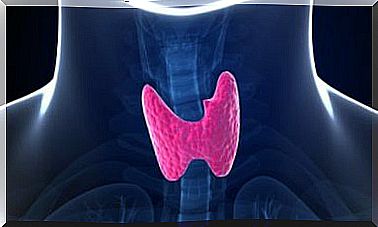Dental Fluoride – How It Helps Against Caries

Fluoride has long been known to help prevent cavities. In addition to brushing and diet control, the use of this element is one of the main elements of protecting teeth against this disease.
But do you know how to use fluoride ? How and when to use it? What if its use could be harmful in some cases? The answers to these questions are important. Therefore, we will tell you more about it in the following article.
What is dental fluoride?
Fluoride is a natural mineral that is found on the earth’s surface, in water sediment and in some foods. It can be found in animal products such as salmon, sardines, and liver; or vegetables such as tea, tomato, potato and spinach.
In addition to incorporating it from natural sources, this mineral is also added to various products as a supplement. Since fluoride has been shown to help prevent tooth decay, some communities use it in tap water to reduce the impact of this disease. Thus, water is fluoridated, as are salts and milk.
In addition, it can be found in dental care products such as toothpastes, rinses and floss, among others. It is also found in materials dentists use in their offices to prevent and treat disease.
The human body has metabolic mechanisms that regulate and control the absorption, use and excretion of this element. Most of the fluoride is retained in bones and teeth; and a minimal part in soft tissues. Excess is eliminated in the urine and to a lesser extent in sweat and faeces.

What is caries?
Cavities related to caries affect both children and adults. In particular, it is an infectious disease that affects minerals on the surface of the teeth. Oral microorganisms metabolize dietary sugars and produce acids that can attack the inorganic component of the teeth.
As a result, hard tissues are demineralized. As it progresses, the teeth lose their structure. When the caries process begins, you may see an opaque white spot that becomes darker as the lesion progresses.
If left untreated and demineralization continues, cavities or gaps appear in the teeth that become deeper and larger. Later, the surface of the teeth becomes soft and the damage can affect the pulp area. This causes painful symptoms or infectious processes to appear.
How can fluoride help prevent cavities?
Fluoride helps prevent cavities through two main mechanisms of action:
- On the one hand, the element chemically combines with the enamel crystals, transforming hydroxyapatite into fluoroapatite, which is more resistant to decalcification. This reaction is neither final nor stable, so frequent exposure to the mineral is important.
- On the other hand, the presence of the element in the oral cavity limits the metabolism of plaque bacteria. This reduces the production of acids responsible for the demineralization of the teeth. In addition, it inhibits the adherence of microorganisms to each other, which hinders the aggregation and accumulation of this harmful layer.
There are two main ways to introduce fluoride into the body. One is systemic, in which the mineral is obtained through the consumption of fluoridated water, food or supplements that contain it. It is distributed throughout the body through the bloodstream and deposits on dental structures that form.
Fluoride working in this way is important when teeth are developing in infants and young children. This is because it bonds with the enamel crystals and makes the tissue much more resistant to cavities.
The second route is the local route, where the mineral is placed on the surface of the teeth once the teeth have grown out and are in the mouth. Fluoride gets there through toothpastes, rinses or floss containing it. Also in varnishes or gels that the dentist applies to the teeth in the office.
It should be noted that fluoride also has a therapeutic effect in the early stages of the disease as it is capable of remineralizing the enamel when some minerals have already been lost.
The dangers of excessive use of dental fluoride
However, too much fluoride can be harmful. Its effect on the teeth depends largely on its concentration. Thus, when used in small amounts, its effect is beneficial. On the contrary, if the amount is excessive, some secondary effects such as damage to the teeth arise.
Fluorosis is a change that occurs due to excessive exposure to this element during the formation of teeth. In this condition, the teeth become discolored, with white or brown lines. The enamel is damaged and in the most severe cases it can become dimpled or deformed.
In general, local communities tend to fluoridate their drinking water to reduce the incidence of caries in the population by using safe concentrations. In such cases, the inclusion of systemic fluoride via supplements is not necessary.
The optimal concentration of this mineral in drinking water is between 0.7 and 1.2 milligrams per liter (mg / L). With these values and the use of regular fluoridated toothpastes – which raise the mineral levels from 1,000 to 1,200 parts per million (ppm) – that’s enough to protect your mouth from disease without taking any risks.
If your drinking water does not contain fluoride, your dentist may suggest you take fluoride supplements, especially during childhood when teeth are forming. The amount and method of use will be determined by the doctor, depending on the child’s age and the risk of cavities it presents.
Additionally, if deemed necessary, the dentist may also recommend toothpastes with a higher fluoride content or mouthwashes containing this mineral.
Other tips to avoid cavities
While fluoride helps prevent cavities, it’s not the only factor you should consider in your oral health. Other practices that can help prevent this disease from occurring are listed below.
- Tooth brushing: cleaning all surfaces of all teeth is necessary to remove the plaque that causes disease. This should be done at least twice a day with a soft bristle brush and fluoridated toothpaste.
- Dental floss: necessary to complement oral hygiene and to reach areas between the teeth that the toothbrush cannot clean. It should be used at least once a day. Cleaning these hard-to-reach places can also be done with interdental brushes and irrigators.
- A balanced diet: proper nutrition and limiting the consumption of simple sugars, ultra-processed sugars and soft drinks help to prevent tooth decay.
- Chewing sugar-free gum: This practice promotes self-cleaning due to the production of saliva that is produced when chewing. In addition, gums usually contain sugar substitutes such as xylitol to help prevent cavities.
- Frequent visits to the dentist: regular dental check-ups allow any problems to be detected and treated early. Professional cleaning and fluoridation in the office is an additional reinforcement that protects the teeth.
- Sealing of fissures and fissures: this is done by a dentist by placing a special material on the retention surfaces of the teeth. This makes them easier to disinfect and prevents the build-up of bacteria in difficult-to-clean areas.
- Eliminate dry mouth: Patients suffering from dry mouth or dry mouth should hydrate frequently and use saliva substitutes to counteract this effect, which promotes tooth decay.
- Treating diseases that lower oral pH: Diseases such as bulimia nervosa, anorexia nervosa, and gastroesophageal reflux disease contribute to the development of tooth decay. They need to be identified and treated.

Follow the dentist’s recommendations
Dental fluoride helps to prevent cavities, so use this advantage for oral health. On the other hand, although it is not so common, excessive consumption of this mineral, especially during the period of tooth formation, can be harmful.
Therefore, a consultation with a dentist is an ideal solution when using oral care and caries prophylaxis products. A doctor will be able to assess the specific oral conditions, patient habits, presence or absence of fluoride in the water to recommend ideal products. It will also explain how to use them and for how long.
Therefore, frequent visits to the dentist are the best way to protect your mouth. Talking to your dentist about your concerns about using fluoride and trusting their advice will allow you to always show off a healthy smile.









